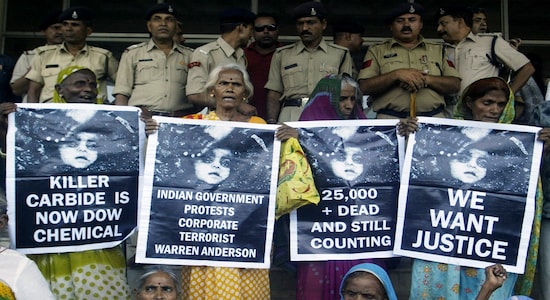
 1 / 10
1 / 10Victims of Bhopal gas tragedy hold posters during a demonstration outside a court in the city of Bhopal on June 7, 2010. REUTERS/Raj Patidar

 2 / 10
2 / 10A victim of the 1984 Bhopal gas tragedy takes part in the "Bhopal Special Olympics 2012" at a stadium in the city of Bhopal on July 26, 2012. REUTERS/Raj Patidar
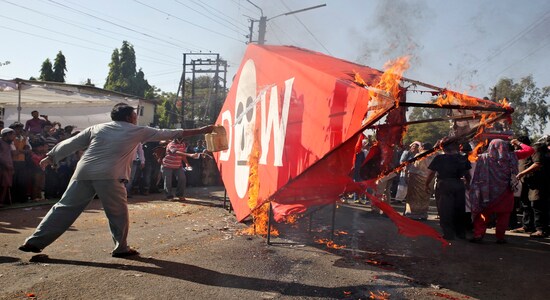
 3 / 10
3 / 10A demonstrator throws kerosene oil on an effigy depicting Dow Chemical Company, which now owns Union Carbide, to burn it during a protest to mark the 30th anniversary of Bhopal gas tragedy in Bhopal on December 3, 2014. In the early hours of December 3, 1984, around 40 metric tonnes of toxic methyl isocyanate gas accidentally leaked from a pesticide factory owned by US multinational Union Carbide Corp. and was carried by the wind into the surrounding slums. The government recorded 5,295 deaths. Activists estimate 25,000 people have died from illnesses in the years since. Many more, they said, are dealing with cancer, blindness, respiratory difficulties and immune and neurological disorders, but with no support. REUTERS/Thomson Reuters Foundation/Nita Bhalla
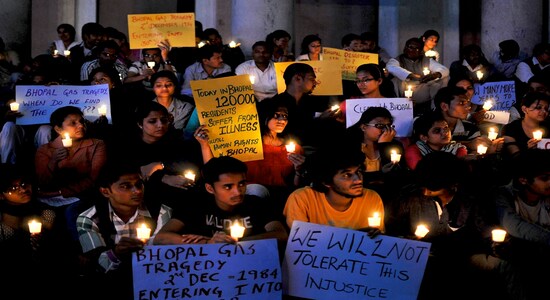
 4 / 10
4 / 10Activists from Bengaluru Solidarity Group, a social group, hold candles and placards during a vigil to commemorate the 30th anniversary of Bhopal gas tragedy, in Bengaluru on December 2, 2014. REUTERS/Abhishek N. Chinnappa
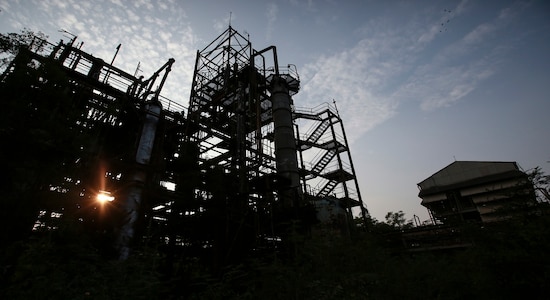
 5 / 10
5 / 10The sun sets behind the abandoned former Union Carbide pesticide plant in Bhopal, November 11, 2014. On the night of December 2, 1984, the factory owned by the US multinational Union Carbide Corporation accidentally leaked cyanide gas into the air, killing thousands of largely poor Indians in the central city of Bhopal. REUTERS/Danish Siddiqui
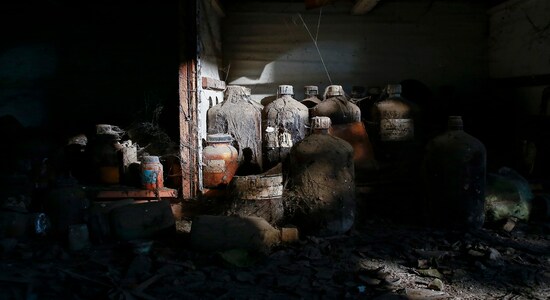
 6 / 10
6 / 10Thick dust covers chemical bottles in a laboratory at the abandoned former Union Carbide pesticide plant in Bhopal, November 14, 2014. REUTERS/Danish Siddiqui

 7 / 10
7 / 10Handicapped children sing during a ceremony in Bhopal, December 1, 2009 to mark the 25th anniversary when Union Carbide Corp, now part of Dow Chemical Co. developed a toxic gas leak resulting in thousands of people dying in the aftermath, in what is called one of the world's worst industrial disasters. Bhopalis and environmental groups say many more people have been harmed since then by pollutants seeping out of the plant site into ground water. REUTERS/Reinhard Krause
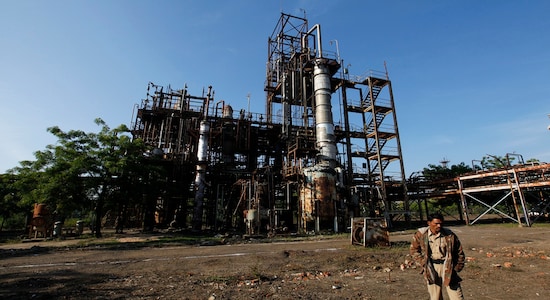
 8 / 10
8 / 10A security guard walks in front of the Union Carbide Corp pesticide plant in Bhopal, December 1, 2009. REUTERS/Reinhard Krause
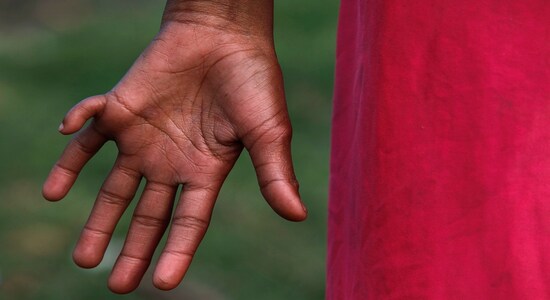
 9 / 10
9 / 10Eleven-year-old Salu Raikwar, who was born with six fingers on both hands, walks in a slum area next to the Union Carbide Corp pesticide plant in Bhopal, November 30, 2009. In December 1984, a toxic gas leak developed at the plant resulting in the deaths of thousands of people. Local activists claim that many people who were exposed to the gas or by the use of contaminated water from near the factory have given birth to physically and mentally disabled children. REUTERS/Reinhard Krause

 10 / 10
10 / 10Union Carbide workers raise their hands up outside the Union Carbide plant on April 18, 1985, protesting against the closure of the pesticides factory where a gas leak killed at least 2,500 people. REUTERS/STRINGER

